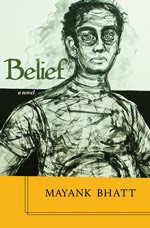
It’s 12 years since Salman Rushdie wrote his controversial analyses of Indian writing in English for The New Yorker.
A dozen years later, Rushdie’s statement doesn’t seem controversial. With the emergence of writers of the calibre of Manil Suri, Kiran Nagarkar and Mukul Kesvan to name just three that Rushdie doesn’t mention in his essay, and the flourishing creativity of the two Vikrams – Seth and Chandra and Amitav Ghosh that Rushdie mentions, proves beyond doubt his trend-spotting sagacity.
In 1997 Rushdie wrote, “Prose writing – both fiction and non-fiction – created in this period (1947-97) by Indian writers working in English is proving to be more interesting body of work tan most of what has been produced in the 16 “official languages” of India, the so-called vernacular languages, during the same time.”
There were howls of protests.
When the essay – “Damme, This is the Oriental Scene for You!” – was published in a collection of his non-fiction work in Step Across the Line in 2002, Rushdie conceded that this view – which caused an uproar that he knew it would and intended it should – could be “improper though not necessarily wrong.”
Since Rushdie wrote his controversial and brilliant essay, Indian writing in English has flourished like never before. It has continued its steady march forward in fiction where as Rushdie says writers are “pushing out the frontiers of the possible.”
I also want to mention a personal favourite – Shantaram by Gregory David Roberts here because it pushes the envelope in areas that were unknown hitherto in the Indian context.
Many would disagree with Roberts’ (an Australian) inclusion in an Indian context, but I argue that what Rushdie says about Indian writing in English should also encompass writings in Indian setting. HRF Keating’s A Perfect Murder (made into a fabulous film by the Merchant-Ivory team) was a sort of a precursor of a trend that will see many followers; Shantaram won’t be the last.
Equally important – though often not adequately credited – is the contribution to the non-fiction genre.
Suketu Mehta’s Maximum City (2005) – a book about Mumbai – is a remarkable example. Such books dealing with the enormous and fast changes in the Indian society are inconceivable in Indian languages. This is creative non-fiction at its genre-bending, path-breaking best. Another important contribution, though of middling creative, literary and academic merit, is the retelling of Ramayana, the classic Indian epic by Ashok Banker.
In his essay, Rushdie says, “For some Indian critics, English-language Indian writing will never be more than a post-colonial anomaly, the bastard child of Empire, sired on India by the departing British; its continuing use of the old colonial tongue is seen as a fatal flaw that renders it forever inauthentic.”
He categorises this criticism as parochial. “It is interesting,” he writes, “that so few of these criticisms are literary in the pure sense of the word. For the most part, they do not deal with language, voice, psychological or social insight, imagination or talent. Rather, they are about class, power or belief. There is a whiff of political correctness that India’s best writing since Independence may have been done in the language of the departed imperialists is simply too much for some folks to bear.”
Indian writing in English is uniquely Indian, as is Caribbean or South African, American, or Australian writing in English. Rushdie explains, “It is a part of the achievement of English-language Indian writers to have found literary voices as distinctly Indian, and also as suitable for any and all of the purpose of art, as those other Englishes forged in Ireland, Africa, the West Indies and the US.”
Rukun Advani, an independent publisher in India and a co-editor of Civil Lines(2000), quotes from a poem, in the introduction to the book , that captures the quintessential dilemma (and the defiance) of the Indian writer in English
When words float free of local reference
writing happens in a fog
of deference,
at the altar of a foreign canon
where kneeling darkies offer lays
to Mammon
Rooting critics point out the danger
of writing to solicit praise
from strangers
Forgetting, as they snout up grounded prose
that deference to roots
breeds potatoes.
In defending Rushdie’s claim and vision, one doesn’t in any manner belittle the enormously important creative output produced in the official languages of India.
From a post-colonial perspective, the importance of English language has increased in the last dozen years to such an extent that it is all set to achieve two things it was never supposed to:
- Be the link language in India in present
- Become the predominant language in India
In retrospect, the anti-Hindi agitation in South India in the 1960s has proven to be a boon for India.
The software revolution wouldn’t have taken off – and neither would have the Indian economy kept pace with the much larger Chinese economy – had it not been for English’s supremacy in India today.
As with any society in transition, especially a post-colonial society, India has a ruling class (which also happens to be a caste) that is completely dependent upon the English language for its “superior” status.
Demographically, in the medium term there will be a phenomenal growth in literacy levels of the number of people using vernacular languages. In the long term, however, users of English language will outnumber those of other languages.
This is illustrated by the fact that almost everyone who can afford to send their children to school prefer English medium schools. Rushdie suitably illustrates this in the essay when he talks about the province of West Bengal (ruled since the late 1970s by the communists) prohibiting English medium education in schools.




No comments:
Post a Comment